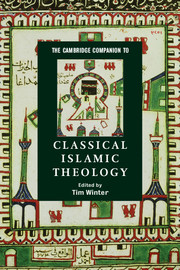7 - Creation
from Part II: - Themes
Published online by Cambridge University Press: 28 June 2008
Summary
“Originator (Badī') of the heavens and earth. When He decrees a thing, He says only 'Be! And it is.”
(Qur'an 2:117)There are eight names for God, among the canonical ninety-nine, which direct our attention to Allah as the source of all that is: al-Badī' (Absolute Cause), al-Bāri' (Producer), al-Khāliq (Creator), al-Mubdi' (Beginner), al-Muqtadir (All-Determiner), al-Musawwir (Fashioner), al-Qādir (All-Powerful) and al-Qahhār (Dominator), each with various connotations of creating. Nothing seems simpler than identifying the one God as creator of all that is; indeed, that has ever been the preferred route for calling attention to the fact of divinity, as in the so-called “proofs” that there is a God. And understandably, since the standing link between such a One and everything else is its origin in that One, so that originary fact connects the revelations proper to each Abrahamic faith tradition with everything we encounter: “the heavens and the earth”, as well as the human speculation which attends everything that surrounds us, and especially ourselves as the portion of creation impelled to that speculation. Moreover, when one is urged by those revelations to make the fantastic attestation of a single creator of all, what results is an ontological divide between the one creator and everything else. For if the God of Abraham can be defined, as Thomas Aquinas does at the outset of his Summa Theologiae, as “the beginning and end of all things, and especially of rational creatures”, that lapidary formula has but one clear implication: God is not one of those things, and this affirmation sums up Islamic tawhīd.
- Type
- Chapter
- Information
- The Cambridge Companion to Classical Islamic Theology , pp. 141 - 160Publisher: Cambridge University PressPrint publication year: 2008
- 1
- Cited by

